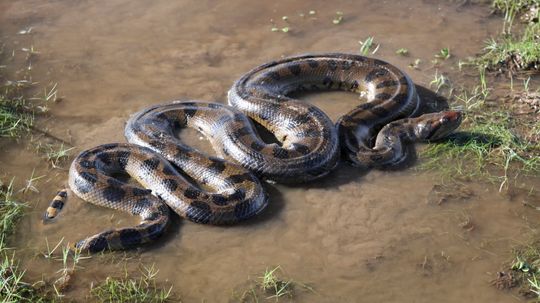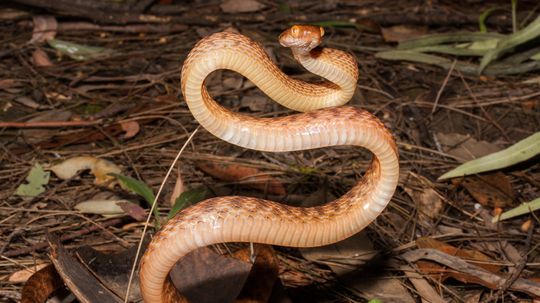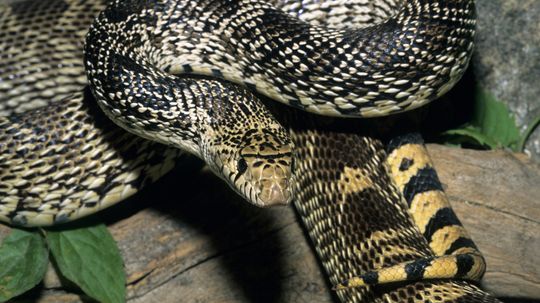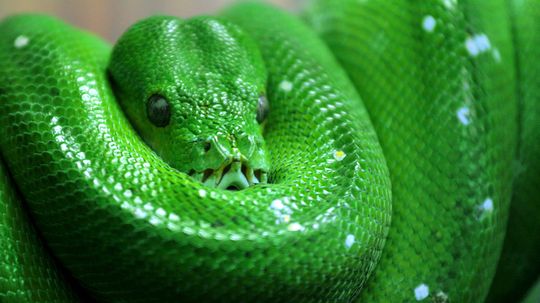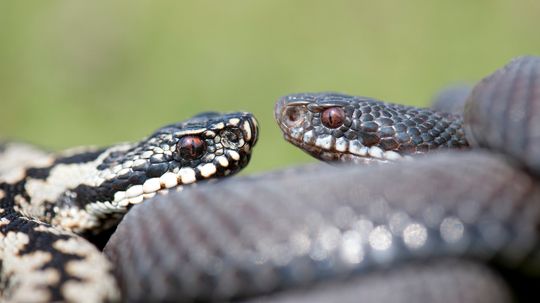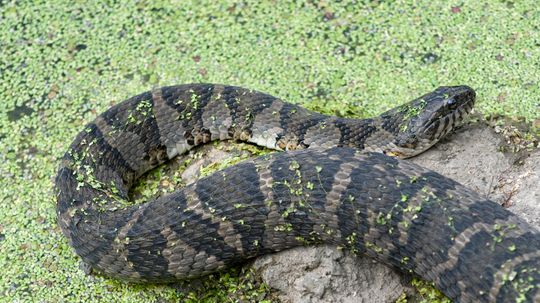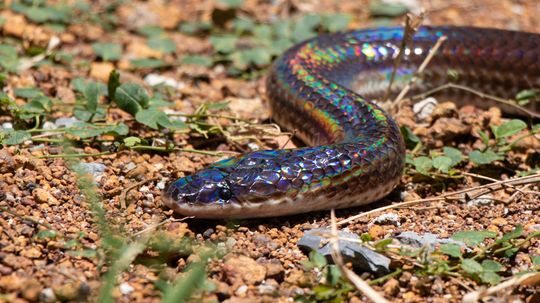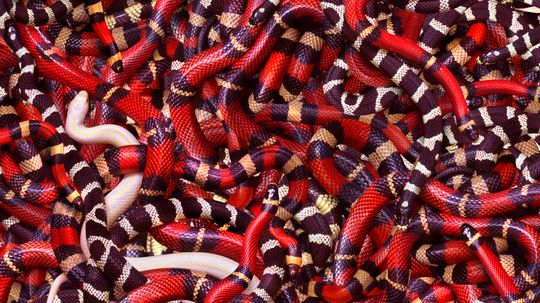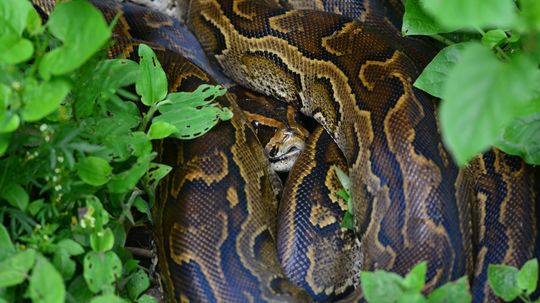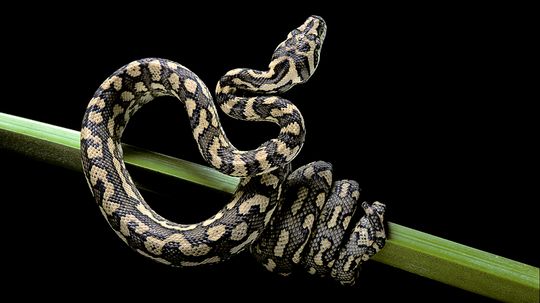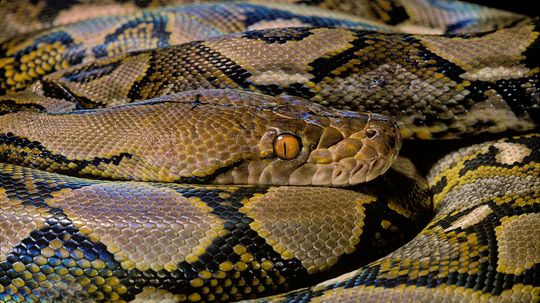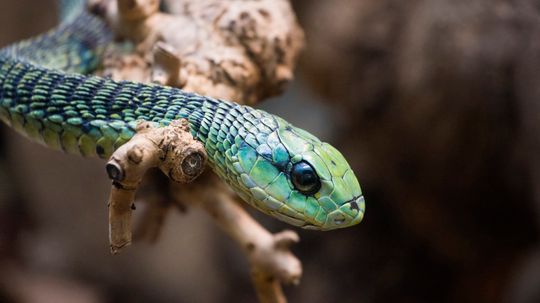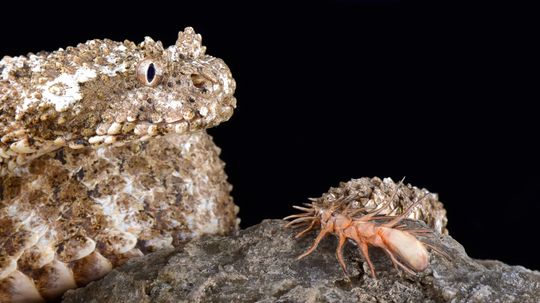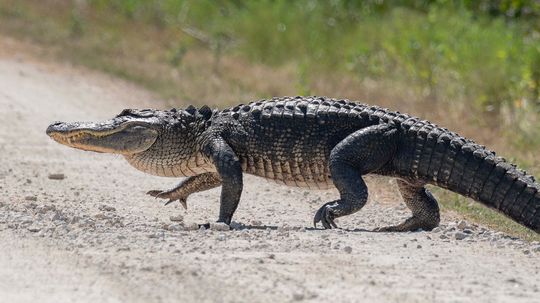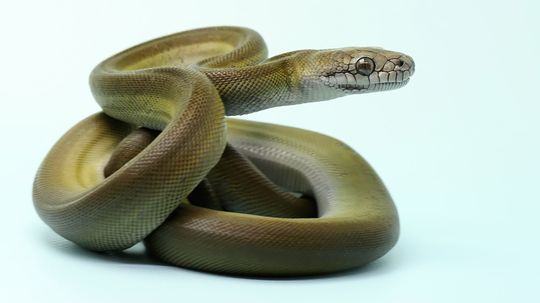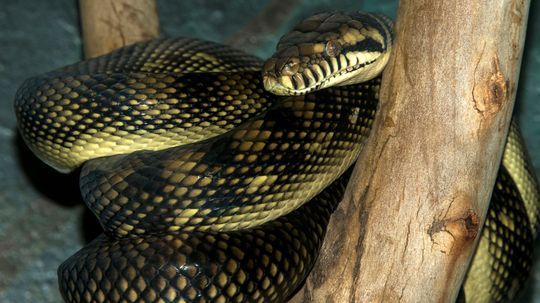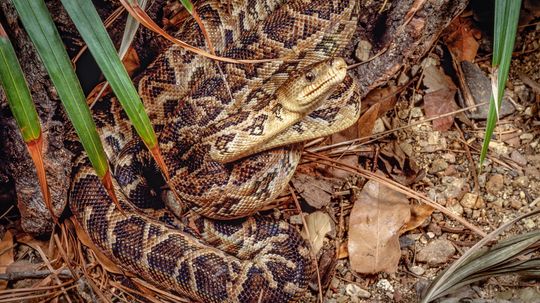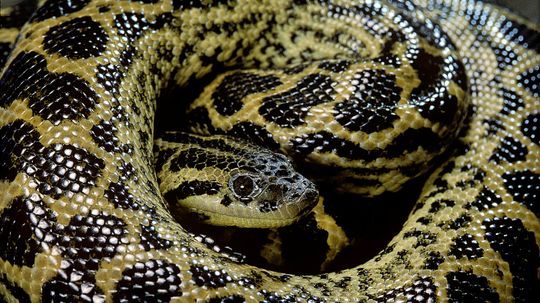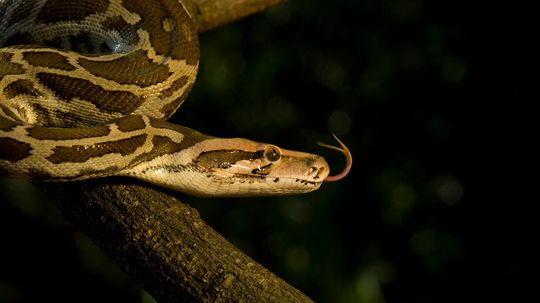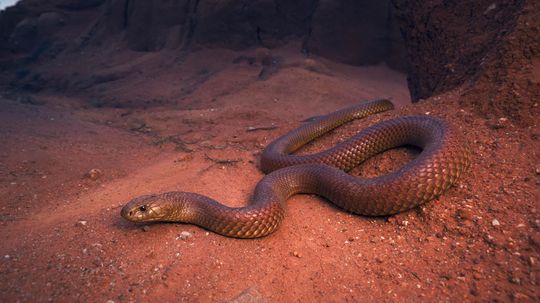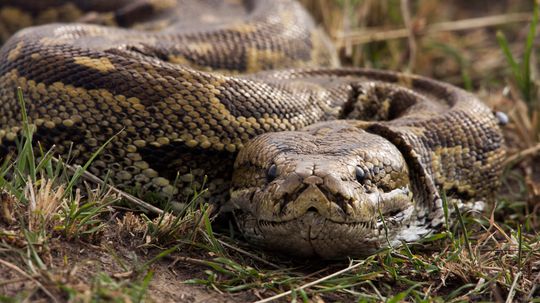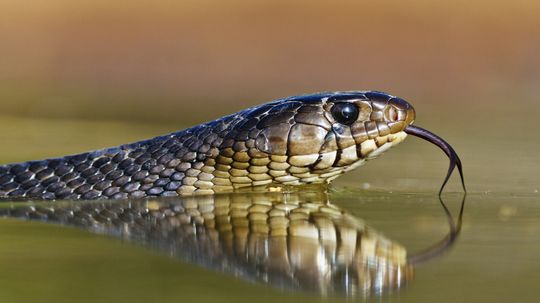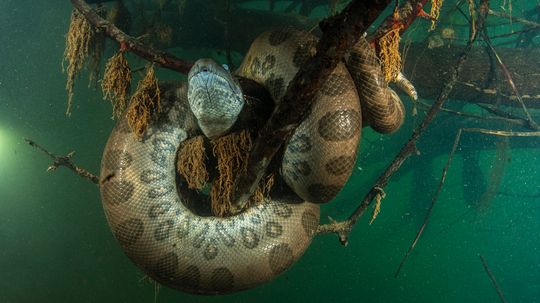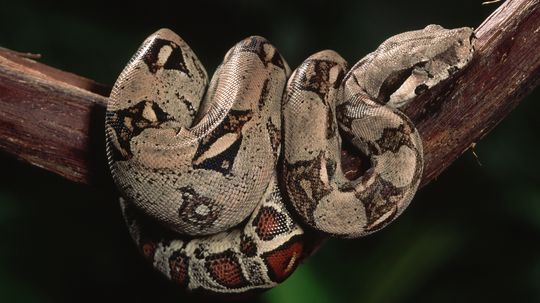Reptiles
Reptiles are cold-blooded vertebrates that have scales layered over their skin. Common reptiles include lizards, snakes, alligators and crocodiles.
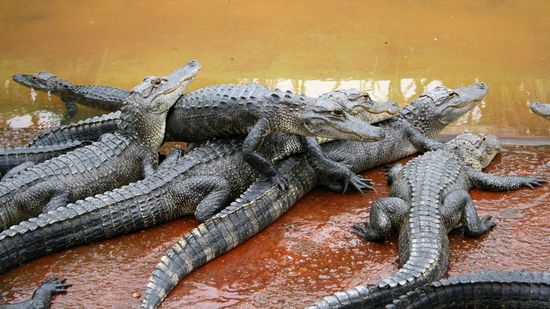
What Is a Group of Alligators Called? It Sounds Surprisingly Formal
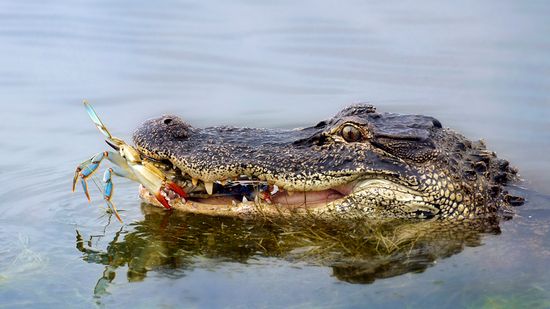
What Do Alligators Eat? Pretty Much Anything They Want
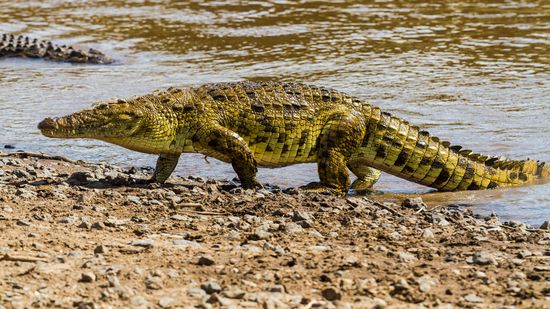
Nile Crocodile: Giant, Vicious and Surprisingly Social
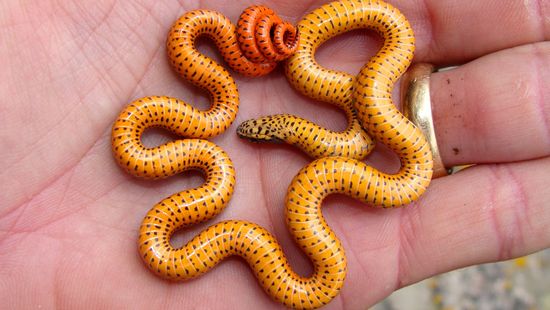
10 Cutest Snake Species That Have Us Squeeing
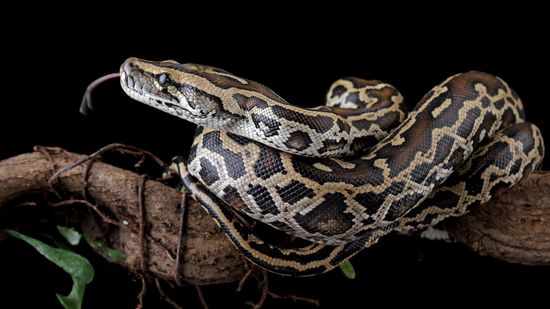
Python vs. Anaconda: Comparing Snakes and Software Languages
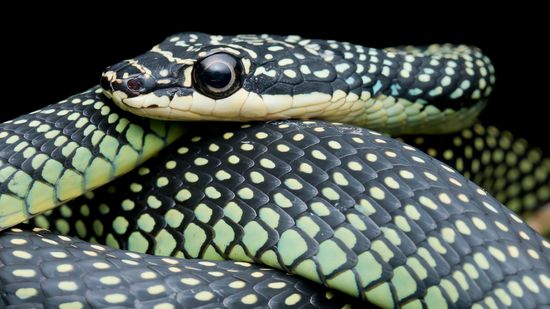
Paradise Flying Snake Truly Falls With Style
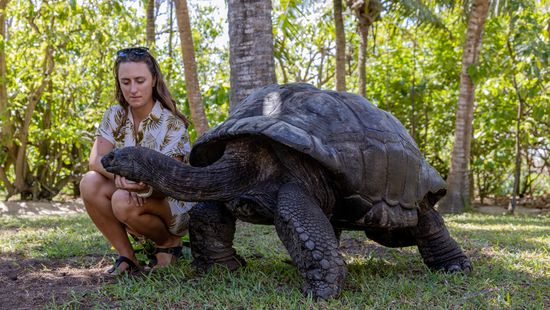
A Giant Tortoise Lives in the 'Galápagos of the Indian Ocean'
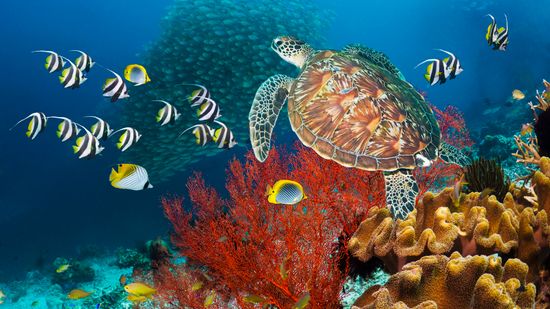
Green Sea Turtle: Named for Its Fat, Not Its Scales or Shell
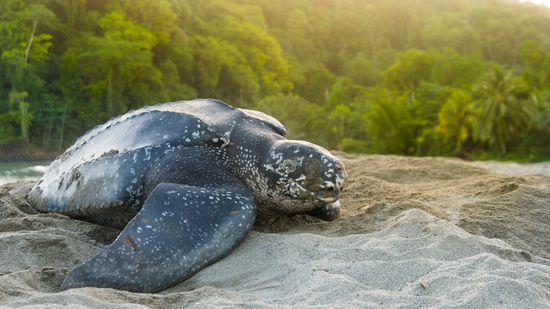
The Leatherback Sea Turtle Is the Size of a Small Car
Learn More / Page 4
When you think of the word "anaconda," it probably conjures up images of massive, slithering serpents lurking in the waters of South America, right? Well, that's not too far off! The anaconda snake, scientifically known as Eunectes murinus, is the stuff of legends.
By Mack Hayden
Brown snakes are some of the most common and diverse reptiles in the world. They come in a variety of sizes and levels of venomous potency, making them a group of wild snakes that's both interesting and important to study.
By Marie Look
Bull snakes (Pituophis catenifer sayi), sometimes generalized as gopher snakes, are among the largest and most powerful nonvenomous snakes in North America. The heavy-bodied bull snake is often mistaken for a rattlesnake due to its size and defensive behaviors, but it's completely harmless to humans.
By Marie Look
Advertisement
In North America, green snakes (genus Opheodrys) are some of the most fascinating and vibrant reptiles you may come across. These slender, emerald-colored snakes can perfectly blend into their leafy surroundings, making them masters of camouflage in their natural habitats. A green snake can play a key role in controlling insect populations and maintaining a balanced ecosystem.
By Yara Simón
Adder snakes are some of the most fascinating and misunderstood reptiles in the world. Known for their distinctive patterns and venomous bites, adders belong to the viper family and are native to various parts of Europe, Asia and Africa.
By Marie Look
The northern water snake (Nerodia sipedon) is a common and widespread nonvenomous snake in North America. These aquatic snakes typically live in and around freshwater bodies - lakes, rivers and wetlands - where they play a crucial role in the ecosystem.
By Yara Simón
The sunbeam snake of the Xenopeltidae genus is one of the most visually stunning reptiles you'll ever encounter. These snakes, native to Southeast Asia, are known for their dark pigmentation and highly iridescent scales that shimmer with rainbow colors in sunlight.
By Mitch Ryan
Advertisement
Snake Island, also known as Ilha da Queimada Grande, is one of the most intriguing and dangerous places on Earth. Located off the coast of Brazil, this island is home to some of the most venomous snakes in the world.
By Yara Simón
The Congo snake, often shrouded in mystery and myth, has captured the imagination of people around the world, particularly with tales of a giant snake reportedly sighted by Belgian pilot Colonel Remy Van Lierde during a mission in the 1950s.
The black mamba, one of the world's most feared snakes, can strike multiple times in rapid succession, delivering enough venom to kill multiple humans within minutes. This is just one of the many reasons snakes are among the most fascinating creatures on Earth.
Carpet snakes, also known as carpet pythons, are some of the most adaptable and widespread pythons in Australia and parts of New Guinea. These nonvenomous snakes are known for their beautiful patterns and impressive size - reaching an average length of up to 13 feet (roughly 4 meters). The carpet snake is a common sight in various habitats.
By Mitch Ryan
Advertisement
The Guinness World Record for the heaviest snake goes to the green anaconda, a massive creature that tips the scales at over 500 pounds - basically the snake equivalent of a grand piano. But when it comes to length, some ancient species stretch even longer than a school bus. These slithering giants are the ultimate combination of "long and strong."
The "most dangerous snake in the world" debate is entrenched in technicalities because there are so many species of dangerous snakes that have evolved with specialized weapons and deadly skills. These predators threaten small prey in the wild, as well as occasional unlucky humans who cross their paths.
By Mitch Ryan
There probably aren't many animals as aptly named as the spider-tailed horned viper. With a tail tip that resembles a spider and horns atop its head, it's easy to visualize this venomous snake.
By Yara Simón
If you came across an alligator in your yard (a totally plausible scenario in a place like Florida), you might think it's the biggest alligator you ever saw. But if it's not pushing 1,000 pounds and 15 feet in length, then it's likely not breaking any records.
By Yara Simón
Advertisement
Although New Guinea's Papuan olive python is nonvenomous, its color-changing camouflage and mighty constriction make it an excellent hunter.
The highly adaptable amethystine python is a nocturnal predator that's able to make itself at home in tropical rainforest, mountains and other landscapes.
The Cuban boa finds shelter in trees and gives birth to live young rather than laying eggs. The oldest Cuban boa is over 30 years old.
The yellow anaconda isn't the only snake species to form breeding balls for mating privileges, but it will engage in the ritual for several hours or even days.
Advertisement
The Indian python was once considered a subspecies of the Burmese python. Now that the former is recognized as its own distinct species, it faces endangerment.
The king brown snake, also known as the mulga, occupies many regions of Australia and is partial to the most arid regions.
The African rock python has a diet of large animals that include crocodiles and warthogs. Learn how this giant snake is capable of eating even larger prey.
The eastern indigo snake takes advantage of a unique shelter that provides much-needed protection to the endangered species and its young.
By Desiree Bowie & Mack Hayden
Advertisement
The green anaconda hunts both in water and on dry land, which is even scarier when you realize the snake is capable of eating prey larger than its own body.
The boa constrictor is a large, nonvenomous snake known for squeezing the life from its prey. They are not considered to be at a high risk of extinction.
